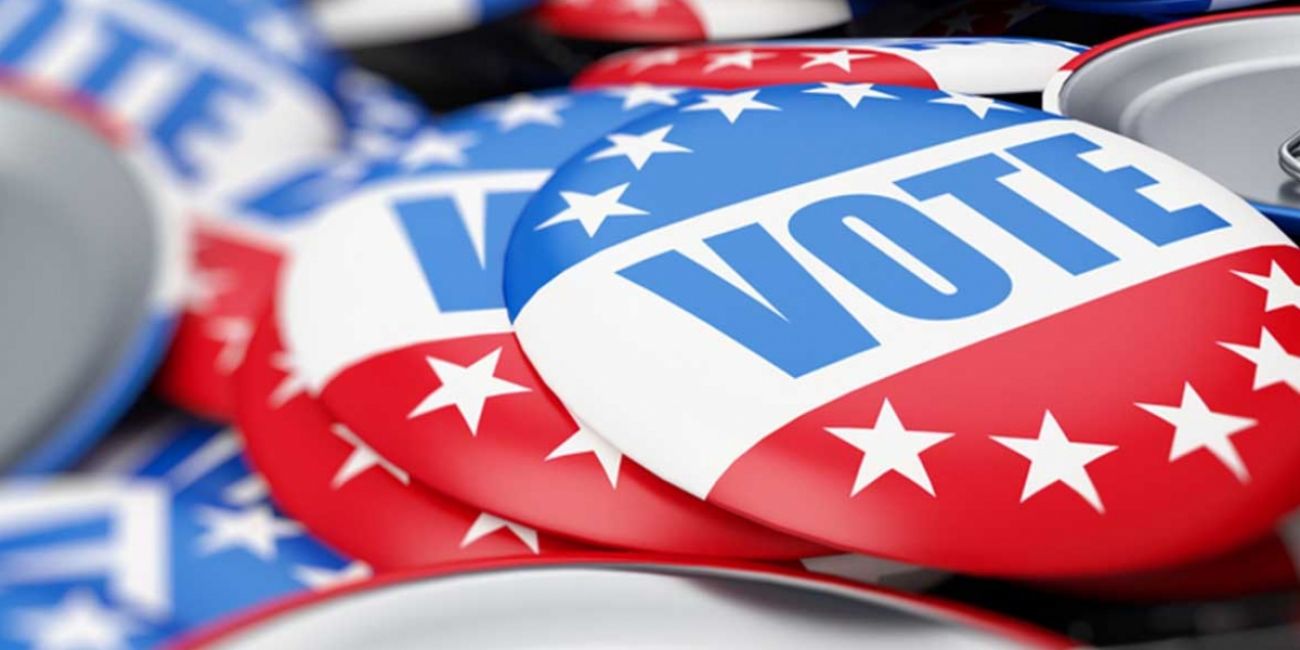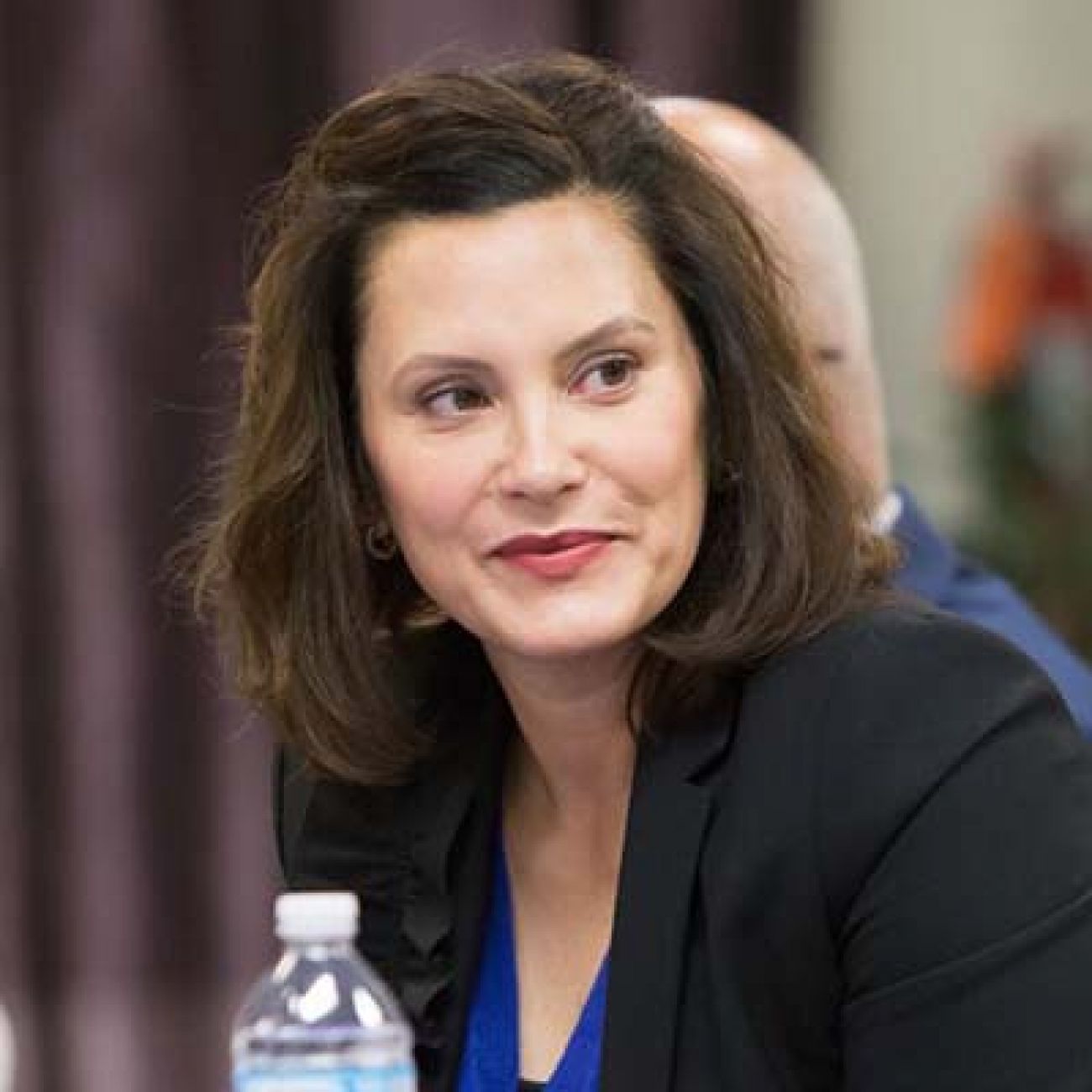Eight takeaways from Michigan’s gubernatorial primary

With Democrat Gretchen Whitmer and Republican Bill Schuette winning their primaries, Bridge Magazine spoke with political consultants, academic experts and pollsters about what Tuesday’s results might portend for November — and whether Republicans and Democrats can unite after raucous primaries in the governor’s race.
Here are eight takeaways from Tuesday’s results:
For this night at least, Michigan polls were spot on
The polls sure got it wrong in 2016, as nearly all showed Democrat Hillary Clinton leading Donald Trump in Michigan ahead of the general election. This time, they called it right — even if they underestimated support for Democratic candidate Abdul El-Sayed.
A July 26 poll for the Detroit Free Press found Whitmer with 49 percent support, compared to 22 percent for Thanedar and 19 percent for El-Sayed. It found Schuette’s support at 42 percent, compared with 24 percent for Calley and 11 percent for Colbeck. An earlier poll by Emerson Research gave Whitmer 39 percent support, Thanedar 17 percent and El-Sayed just 12 percent.
Just one survey, an internal poll for El-Sayed, predicted his stronger standing.
Related Michigan governor race stories:
- Gretchen Whitmer and Bill Schuette, ideological opposites, face off for governor
- Maps show easy paths to victory for Whitmer, Schuette in Michigan primary race
- Gretchen Whitmer wins Democratic primary | Bill Schuette wins Republican nod
- Where Michigan governor primary winners Schuette and Whitmer stand on issues
- Who’s funding Michigan governor primary winners, Schuette and Whitmer
- Michigan's biggest primary winners weren’t red or blue. They were women
Bernie Porn, president of Lansing-based polling firm EPIC-MRA, attributed El-Sayed’s stronger showing to his endorsement from former presidential candidate and U.S. Sen. Bernie Sanders, their joint appearance just two days before the primary and the likely defection of Thanedar supporters.
“My guess is that with Bernie’s endorsement, it made a lot of people think maybe Thanedar is not the most progressive candidate in the race, even though he said he was,” Porn said. “And El-Sayed had a very impressive grassroots organization.”

Democrats are feeling the momentum, but fall is too early to call
With the GOP holding the White House, the state’s history in midterm elections might point to an edge for Democrats. Since the 1930s, the party that holds the presidency has lost 17 Michigan midterm gubernatorial elections (including the past six) and only won four. And a June survey of several Midwest states found that Michigan Democratic voters are itching for the chance to cast ballots this fall, with 70 percent of Democrats saying they will definitely vote, compared with 56 percent of Republicans.
Early indications are that enthusiasm crossed over to the ballot box. As of late Tuesday night, around 100,000 more Michiganders voted in the Democratic gubernatorial primary than in the Republican one, according to unofficial results.
Several Democratic politicos interviewed Tuesday said they believed the showing bodes well for their party come November. Adrian Hemond, partner and CEO of Grassroots Midwest, said both the turnout and the impending ballot initiatives are likely to drive liberals to the polls.
“It’s kind of pick your flavor, right?” Hemond said. “Even if you’re a Democrat who’s not super enthused about Whitmer for governor, you’ve still got paid sick leave or redistricting reform or no-reason absentee voting you hang your hat on. ... There’s probably something you care about deeply on the ballot in November to drag your behind out to the polls.”
With results still coming in, however, “it’s way too early,” said John Truscott, CEO of Lansing-based public relations firm Truscott Rossman and a former press secretary to Republican Gov. John Engler.
More spending or tax cuts? Michigan voters have a stark choice
The November election will be an old-fashioned referendum fought by insider politicians on basic governing philosophy, said Doug Koopman, a Calvin College political science professor.
Do voters want to hike fees to repair roads and spend money to make college free? Or do they favor less government coupled with an income tax cut?
Whitmer has campaigned for two years of debt-free community college, though she has not detailed how she would fund its estimated $100 million annual cost. She said she’d consider hiking motor vehicle “user fees” to “fix the damn roads” and would raise the state’s minimum wage to $15 an hour.
Related: Truth Squad: Gretchen Whitmer’s claims on college affordability
Schuette says he’d funnel money saved by repeal of the prevailing wage law into roads, though it’s unclear how much that might be. He has no plan for free college. He opposes a $15 minimum wage. Schuette would cut the personal income tax from 4.25 percent to 3.9 percent.
“It’s really a throwback, an old-style Republican and Democrat,” Koopman told Bridge. “She will be accused of being a tax-and-spend Democrat, and Schuette will say we will fix the roads without raising taxes. This is two conventional politicians.”

Keep President Trump close, but independents closer
Trump’s endorsement of Schuette clearly helped him in a partisan primary. Trump remains popular among Republicans, but he is controversial, and that link could prove problematic in the fall contest, several experts said. Plus, he remains largely unpopular among most Michigan voters.
“Trump is toxic among independents and Democrats,” Porn said. “It will be interesting to see how he pivots. If he continues to wrap himself around Trump, that will be a negative for him.”
Put another way: “I don’t think there’s any question that Gretchen Whitmer and the Democrats are going to hang Trump around Schuette’s neck,” said Lansing political insider Bill Ballenger.
Related: Do Michigan Republican candidates support Trump? Let us count the ways
Meanwhile, the president enjoys high approval ratings among Michigan Republicans. That would make it unwise for Schuette to totally pivot away from Trump just to pick up moderates, some experts said.
“If anything, he’ll pivot to other populist messages of Trump that also resonate to the middle,” said Sarah Hubbard, principal at Lansing-based consulting firm Acuitas LLC. “That’s the coalition Trump has: The conservative Republicans plus the populist pro-tariff, pro-protectionist independents.”
Related Michigan governor race stories:
- Bill Schuette interview: Michigan must fix education, lower taxes and car insurance
- Bill Schuette discloses 2017 taxes, more financial details in Michigan governor’s race
- Gretchen Whitmer interview: Grow Michigan by offering debt-free community college
- Michigan Democratic governor candidate Gretchen Whitmer discloses taxes
Rallying progressives to the Democratic flag
Some of the fault lines of the 2016 presidential primary reared their heads in this election. El-Sayed was a favorite of progressives who voted for Sanders in 2016 over Clinton. Some pundits have blamed the failure of Sanders’ supporters to come out and vote for Clinton in the general election for Trump’s victory.
Analysts say El-Sayed and Thanedar’s combined showing indicates the progressive movement is still alive and well in Michigan. But any outstanding distaste for the establishment will likely be swallowed come November, especially if Whitmer creates more inroads with both the left flank of the party and Detroit’s African American community in the next three months.
Related: Friction among Michigan Democrats might pose threat to victory in November
“When it comes to the Democratic Party uniting, (it) isn’t easy, but it happens,” said Al Williams, a Detroit political operative who is former membership director of the Michigan Democratic Party. “You’ll see some people from the progressive end under Abdul that will be apprehensive, but they’ll come around.”
El-Sayed promised unity in his concession speech Tuesday, calling on supporters to work to defeat Schuette. But not all of his supporters may be ready to fall in line.
"The Democrats need to embrace progressive values and stop taking voters for granted who are looking for leadership and, quite frankly, looking for bravery,” said Eric Thomas, 30, of Detroit, an El-Sayed supporter. Thomas gave Whitmer even odds of unifying the party.
Steve Hood, a Detroit political consultant, said Whitmer’s campaign lacks diversity. Thanedar did well in Detroit because he connected with city residents in a way the other candidates did not, Hood added.
He added that Whitmer’s first move should be to meet one-on-one with El-Sayed and Thanedar and seek out their help, “then she’s got to marshal her team to be more active in Detroit."
Money can’t buy everything
Democratic millionaire entrepreneur Shri Thanedar spent $10.6 million of his fortune on his primary campaign, paying for folksy TV ads that poked gentle fun at his hard-to-pronounce name and glossy flyers that blanketed voters.
His campaign banked heavily on a big turnout in Detroit but lost Wayne County and the rest of Michigan, finishing third with 18 percent. He’ll be lucky to reach 200,000 votes.
That would make his return on investment $53 per vote, or enough to buy everyone who marked a ballot for him two lobster and filet mignon dinners from Outback Steakhouse.
The bet-everything-on-Detroit strategy was so doomed Thanedar didn’t even schedule a campaign party Tuesday, watching results with his family from a hotel suite in Detroit.
“The...hustlers took Shri Thanedar for a glorious ride,” Bill Cobbs, a write-in candidate for governor, wrote on Facebook, an apparent dig at Detroit-area ministers Thanedar hired to run his campaign.
Republicans must unite
The race between Schuette and Calley descended into negative attacks over Schuette’s alleged misuse of his public office to conduct personal and political business, and Calley’s decision to pursue a master’s degree at Harvard University while serving as lieutenant governor. Both candidates pledged unity Tuesday night, with Calley offering congratulations in videotaped remarks and Schuette urging Republican voters to unite toward the common goal of winning in November.
Republicans will align around party principles “because there’s more to lose if we get it wrong,” said Linda Lee Tarver, a longtime Republican activist and president of the Republican Women’s Federation of Michigan, who supported Schuette.
That may be, but harsh feelings remain between Calley and his boss for the past eight years, Gov. Rick Snyder, and Bill Schuette.
Said Ballenger: “The real question is will Rick Snyder endorse Bill Schuette?”
Will the ethical and legal accusations trailing Bill Schuette hamper his fall campaign?
The allegations didn’t appear to hurt him in the primary, Ballenger said. The general election will be a different story, as Whitmer likely will use it against him. Ballenger and others say Schuette needs to address the allegations quickly, and can’t afford to ignore questions about it for long.
“It’s clearly something that he’s going to have to explain a little better,” Truscott said. “Tell the truth, be transparent and get past it. On one hand, it’s good that issues like that come up early, so you can deal with it and put it aside. It’s a lot better than these things coming up in October.”
See what new members are saying about why they donated to Bridge Michigan:
- “In order for this information to be accurate and unbiased it must be underwritten by its readers, not by special interests.” - Larry S.
- “Not many other media sources report on the topics Bridge does.” - Susan B.
- “Your journalism is outstanding and rare these days.” - Mark S.
If you want to ensure the future of nonpartisan, nonprofit Michigan journalism, please become a member today. You, too, will be asked why you donated and maybe we'll feature your quote next time!

